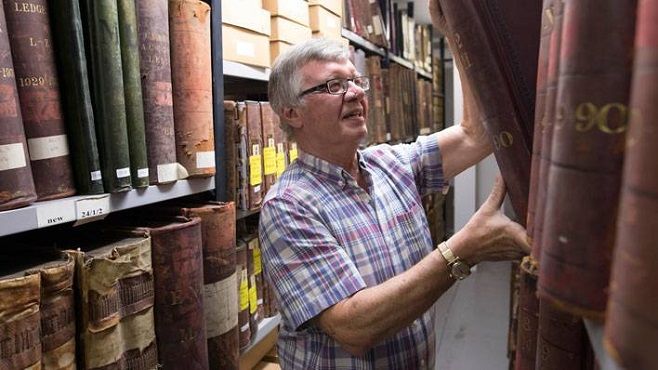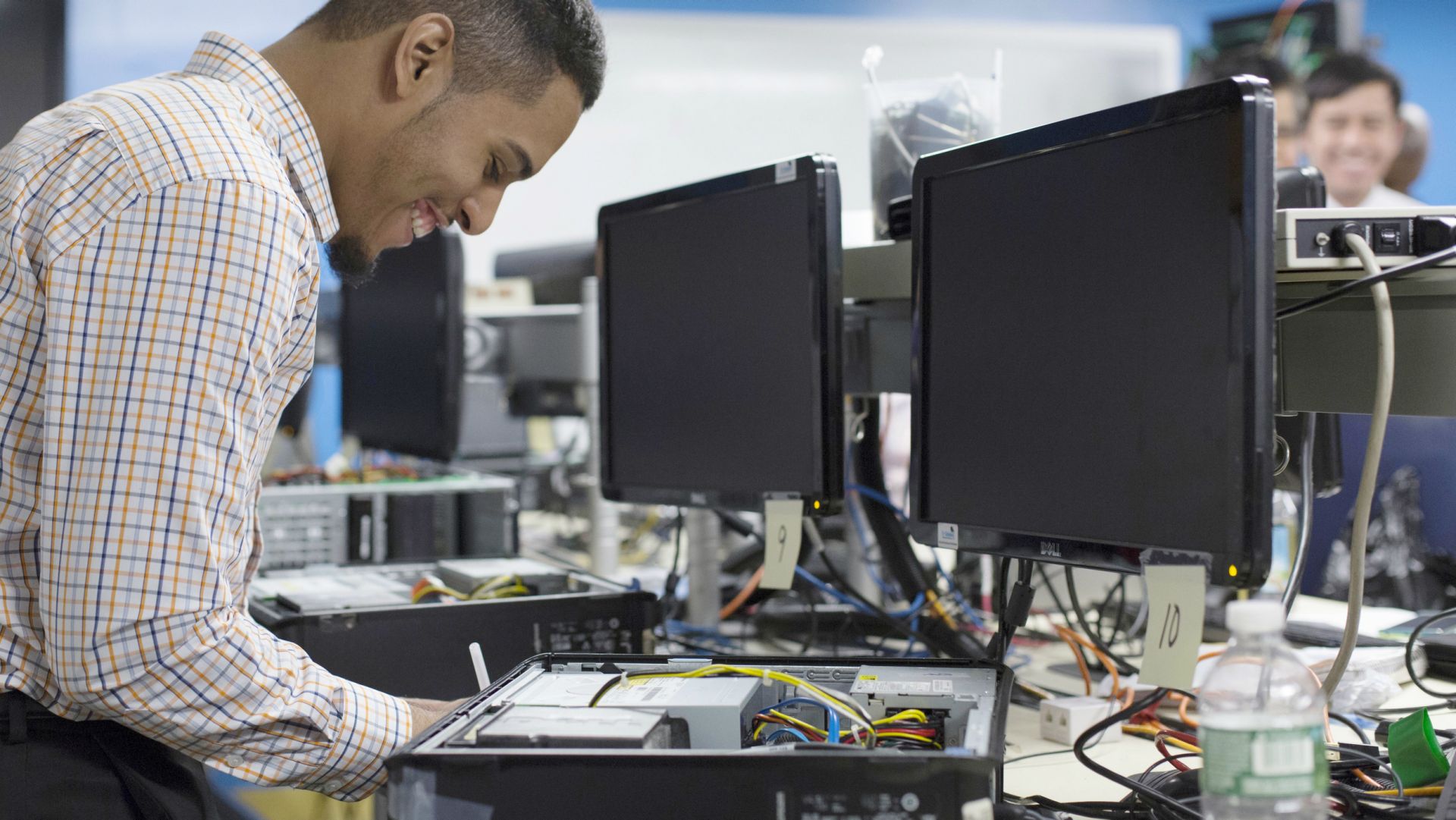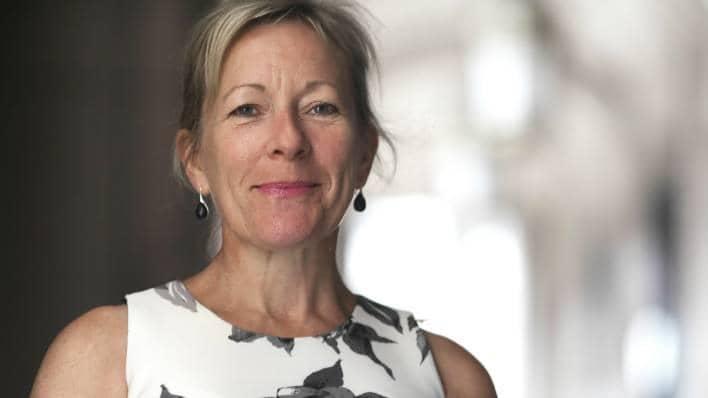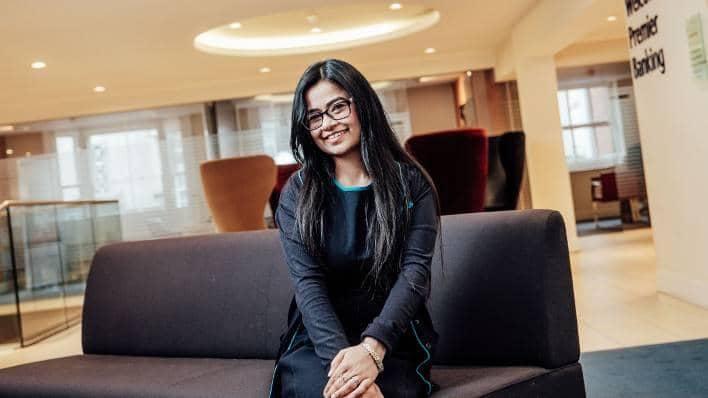
In The World: The Archives volunteer
We talk with Alan Thomond, a retired colleague who now volunteers at the Barclays Group Archives in Manchester

Wayne Kunow, Global Head of Cyber and Information Security Governance for Barclays International – based in New York – has been with the bank for 12 years. He tells us about his work with Per Scholas, a non-profit dedicated to helping people from the city’s overlooked communities into work.
Here in Manhattan we have some flourishing areas, but we also have communities that are overlooked, whether unemployed or underemployed, and it’s the responsibility of all of us to change that.
I am on the board of an organisation called Per Scholas, an initiative that started more than 20 years ago and is dedicated to opening doors in transformative technology to those from often overlooked communities. My relationship with them started about five years ago when I was recruiting for my department. A former colleague recommended the initiative and so I did some research and was really impressed with what I found.
“It’s great that Barclays offers these opportunities, but it’s important to remember that it’s a two-way street: we also get a lot back.“
It’s great that Barclays offers these opportunities, but it’s important to remember that it’s a two-way street: we also get a lot back.
Per Scholas runs several free courses across America, which last 14 to 18 weeks, for those from areas that are under-represented in the workplace. The courses aim to equip individuals with the necessary skills to forge a career in the technology industry. Anyone can apply for Per Scholas – you don’t need a college degree and there is no age limit. All we ask is that people demonstrate a strong commitment to the programme.
It’s a real pleasure to work for a company like Barclays that actively encourages employees to get out in the world and make an impact. And it’s great that the bank offers these opportunities, but it’s important to remember that it’s a two-way street: we also get a lot back. We’ve hired fantastic people and they’ve helped us constantly challenge and adapt our processes.
For example, before the programme, the response time in my department to request tickets was one to two days and, quite simply, not as quick as it needed to be. We now hire two interns from Per Scholas to deal with responses and the reply time is down to two hours. This is great for our team, and, most importantly, a huge bonus for the business.
We also co-developed a cyber security programme with Per Scholas to encourage skills in an area of technology that is exploding. The results have been fantastic – so far, through the programme, we have hired 14 people to take part in six-month internships, in addition to the dozen people that we previously hired.
Michelle was the first person we hired from Per Scholas. She joined us five years ago and watching her grow into her role in my team has been amazing. From the moment she walked in, she showed a real hunger to learn, and that’s why she has been so successful. Michelle has worked in several departments at Barclays and is now a Cyber and Information Security Analyst – so she’s responsible for dealing with cyber issues within the bank.
After the success of Michelle’s appointment, we organised a series of mock interviews for Per Scholas students. Our Barclays team told us how great they were, commenting that it was a shame we couldn’t hire them – so we decided to do just that. We recruited several students to one of our apprenticeship programmes four years ago and haven’t looked back! We still have a programme of mock interviews, but we augment that with guest lecturing, career advice, and course development.
The most important thing about the Per Scholas programme is that it helps Barclays as a business to diversify. Over 40% of those we’ve employed are female and almost all are from ethnic minority backgrounds, which is great as the technology sector in New York is not as diverse as it should be. It’s integral to have people with a different point of view, and a variety of experiences, to help us think a little differently.
The impact of the programme has been huge: we’ve managed to give people much-need jobs and solve problems here at the bank. What a winning combination that is.
The best part of the project is meeting the graduates at the end of their course and seeing the impact it’s had on them. So many people have told me that by believing in them, and giving them a chance, we’ve changed their lives.
So many people have told me that by believing in them, and giving them a chance, we’ve changed their lives.

We talk with Alan Thomond, a retired colleague who now volunteers at the Barclays Group Archives in Manchester

Rachel Scandling, Strategy and Optimisation Lead, left a career in the Royal Navy to join Barclays two years ago

Digital Eagle Shweta Walia explains why she joined a programme to train 2,100 Marie Curie nurses to use computer tablets, freeing them to spend more time caring for patients with a terminal illness

Tracy Cox-Smyth works as an Executive Assistant in the Investment Bank at Barclays – and volunteers as a “buddy” at sporting events for disabled athletes, including wounded ex-servicemen and women, around the world
